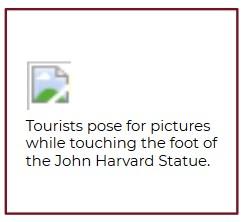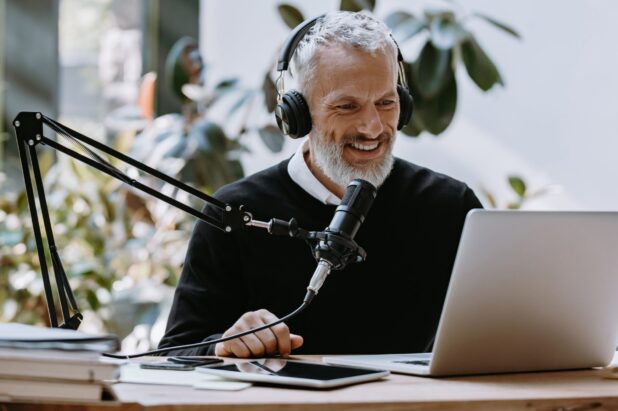Accessible and inclusive content matters — not only for brand perception but because it’s the right thing to do. You don’t want anyone reading your content and thinking, “That’s not for people like me” because they don’t see themselves reflected in what you create.
Whether the readers are your potential buyers or not, your brand content should at least feel approachable to everyone.
Don’t treat accessibility and inclusion as an afterthought. It should be a core part of your content — something your brand strives for. Here are some top areas to think about as you are creating accessible and inclusive marketing content for your B2B brand.
1) Style guide
At the core, your content team needs to understand what is meant by accessible and inclusive content and your company’s ongoing commitment to it.
You can start with outlining how your business will ensure your content is accessible and inclusive — and what content goes against those standards.
Your style guide should include a specific section about language and images. Many phrases and terms are rooted in our vocabulary, and we don’t think about their undertones. For example, you can specify avoiding the use of gendered jobs (“fireman”) or phrases like “falls on deaf ears.”
Your style guide can also note specific ways that text can be more accessible. “CamelCase” for hashtags (capitalizing the first letter of each word) is better for screen readers. Decorative fonts in social posts are inaccessible to screen readers altogether. And, as Chelsea Castle, who heads up content at Lavender points out, you need spaces on both sides of any emojis.
Friendly reminder that if you aren't adding spaces on both sides of your emojis, you're not producing content that is fully accessible to all humans reading it. 💜
— Chelsea Castle (@ChelseaCastle) February 10, 2023
2) Images
Images can often feel secondary to content teams. You finish a blog post and rush to find an appropriate hero image or add some alt text. But for the reader, images are part of the first impression.
If you’re using stock photography or creating illustrations that include people, make sure that you’re representing diversity: race/ethnicity, gender, age, and abilities. With the vast range of people in modern society, you’ll give off a vibe that your company isn’t paying attention — or doesn’t care — if your images lack diversity.
Give alt text the attention it deserves. For anyone using a screen reader, your alt text should have an impact in the way you expect an image to enhance the content. (Plus, you give context to Google for search engine rankings.)
Write good alt text descriptions for all of your images. And you can use them as a way to enhance your brand content! Some of the best alt text is also fun and playful, in addition to describing the image.
3) Videos
We are in the Age of Video. YouTube, TikTok, Instagram Reels… videos have crept into our LinkedIn feeds and even current sales outreach techniques. And video content can be limiting for people in different ways, ranging from hearing-impaired to neurological disorders to ADHD.
If video is part of your content strategy, remember to make your videos accessible to viewers. That means always including closed captions. You should also include a transcript for people who prefer to skip the video altogether and read the content instead.
Video can be especially hard for people with sensory issues, so avoid auto-playing or flashing lights.
4) Interviewees
Collaboration is an important part of content, whether you’re interviewing subject matter experts or hosting a webinar. Do your collaborators represent a diverse group of people?
With our own podcast, Elevate B2B Marketing, we are on a mission, not only to Elevate the B2B marketing industry, but also to elevate the diverse voices making an impact within the space — actively seeking out voices who promote and reflect inclusion (as well as inspire us all).
Representation matters, especially in industries dominated by men, white people, or both. If you only capture the “easy to find” experts in these fields, you’re not getting a range of perspectives. Even if you’re not conducting live interviews but quoting experts based on research, make sure you’re including marginalized people — and actively seeking them out.
Ask any of your collaborators for their correct pronouns. Don’t assume. Use the correct pronouns in anything you write or any interviews you conduct. If your collaboration includes audio — either live or recorded — ask your collaborator for correct name pronunciation.
“Collaboration is an important part of content, whether you’re interviewing subject matter experts or hosting a webinar. Do your collaborators represent a diverse group of people?” — Katelyn Drake @KB_Drake Share on X5) Website
Many of these elements mentioned will converge on your website. And since websites often contain a lot of content, you’ll want to examine each page in both web and mobile formats.
Colors
Color — and specifically, color contrast — makes your website content more accessible to people with visual impairments or who are colorblind. They have difficulty with certain colors or color combinations, potentially making it hard for them to navigate your site.
If you use a color scheme with good contrast for a wide range of people, you’ll increase the overall user experience, regardless of visual abilities. You can run your colors through a contrast checker to see if your site needs improvement. This applies to text, images, icons, and buttons.
Fonts
Not all fonts are created equal, and some are very difficult for visually impaired people. If the font is too small, too thin, or has a low contrast with the background, it will be difficult to read.
Sans serif fonts (like Arial) are better for people with dyslexia because the letters are less crowded. If you’re looking for a serif font, a mono-spaced font like Courier is easier to read.
Overall, choose something simple, with good spacing, and don’t use italicized fonts.
Structure
Creating content that flows in a logical order is an important part of website accessibility. Heading twos (H2s) and heading threes (H3s) help screen readers. Breaking up blocks of text with headers also helps neurodivergent readers with information processing.
You can also use bullet points to increase the readability of your posts.
Review and make changes as needed
As Rease Kirchner, senior content marketing manager at Webflow points out: “[Inclusive content] is not a badge of honor you earn with a single initiative or intention — it’s an ongoing and intentional effort.”
As marketers, we’re always on the alert for changes in the world around us. Technology, culture, language, work — they’re all constantly evolving. And that means being aware of additional ways to be more accessible and inclusive in the future.
If you’re looking for a creative partner to support your brand’s content needs, connect with the TopRank Marketing team. Contact us to learn more!




